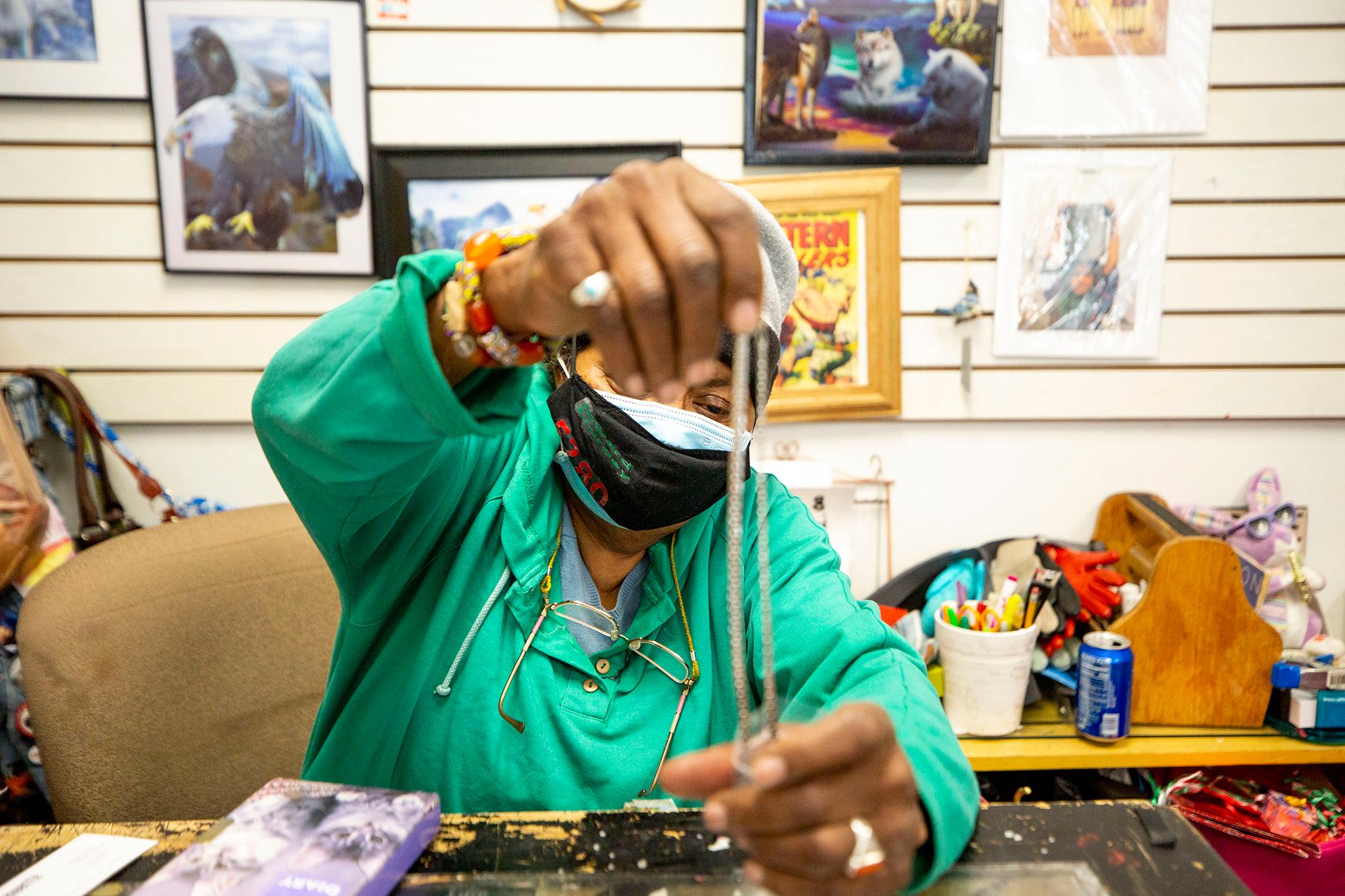"There's just not enough business to stay in business," Jackie Logan said in her gift shop, Neat Stuff on Welton, as she waited for customers to take advantage of her clearance sale. "There goes another Black business on Welton."
Logan opened her store, at 2547 Welton Street, nearly 23 years ago. If she had made it to 25 years, she said, she might have retired on her own terms. Instead, her business in the heart of Five Points has buckled under the weight of the pandemic. She plans to close around May 1. Before she does, she's hoping to sell off as many knickknacks, photographs and decorations as she can.
"There's not another business on Welton like this anymore," she said. "When I first moved in, we were everywhere."
Ten businesses on Logan's block are accessible from the street, including hers. Neat Stuff is surrounded by a branch of a national bank, a nonprofit clothing bank, two locally owned gyms, an insurance company, a cocktail bar, an interactive tech company, a theater and a massive new apartment building. We surveyed as many businesses in the area as we could, hoping to get a broader sense of how people who earn their livelihoods in Five Points are making it through this moment.
We got a hold of six business owners for this story. Each owns a small, local enterprise. We're still hoping to hear back from bigger residents on the block, like Four Winds Interactive and the Lydian apartments, for a larger survey of city businesses.
All six we heard from rent their spaces, said their landlords cut them a break during the worst of the pandemic, and received some kind of grant or loan meant to offset the economic downturn. The Five Points Business Improvement District was responsible for many of these grants; the group dished out $1,000 payments to many owners on the corridor. Four said they're feeling more secure after the most recent loosening of COVID-19 restrictions in Denver.
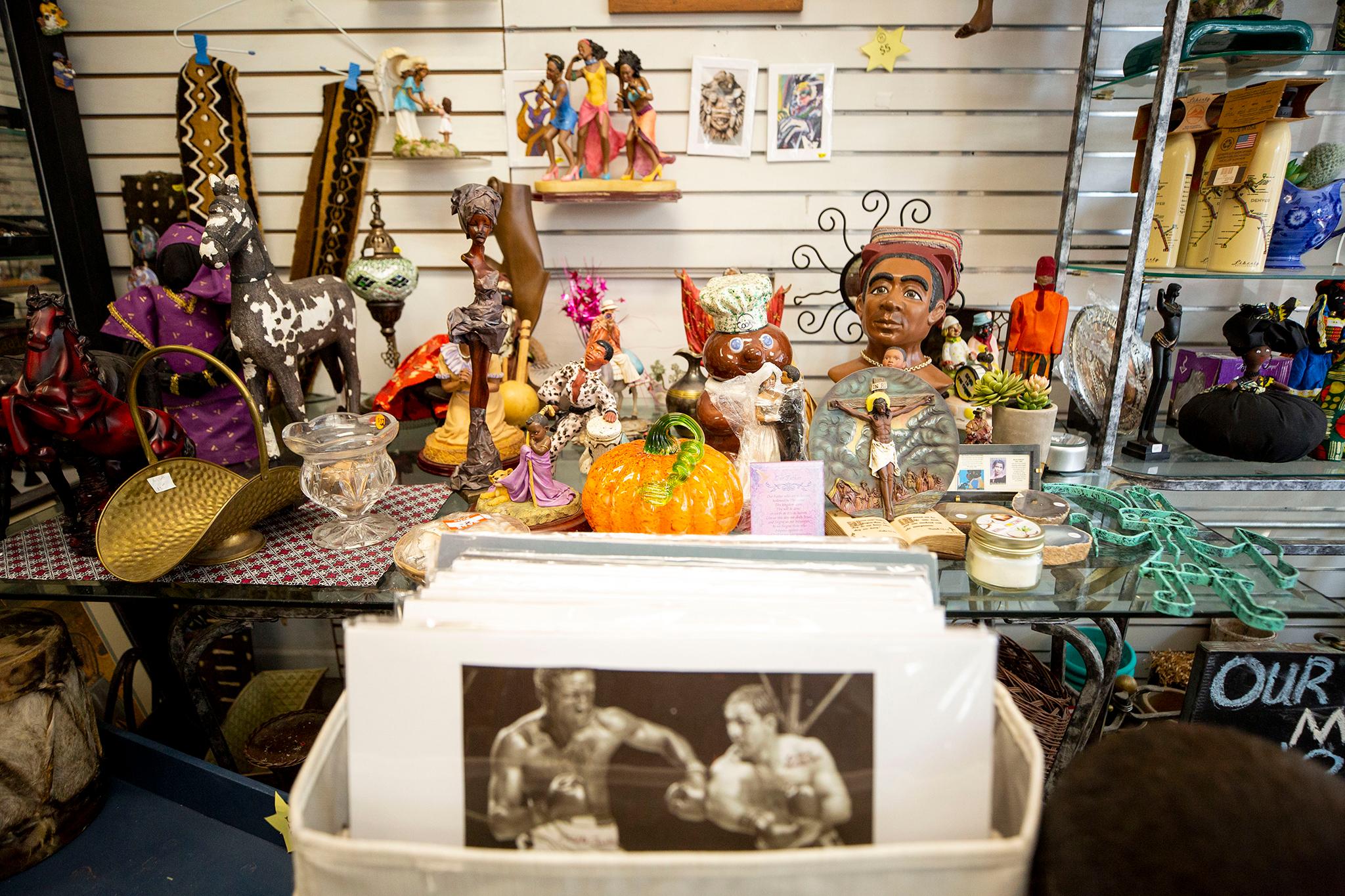
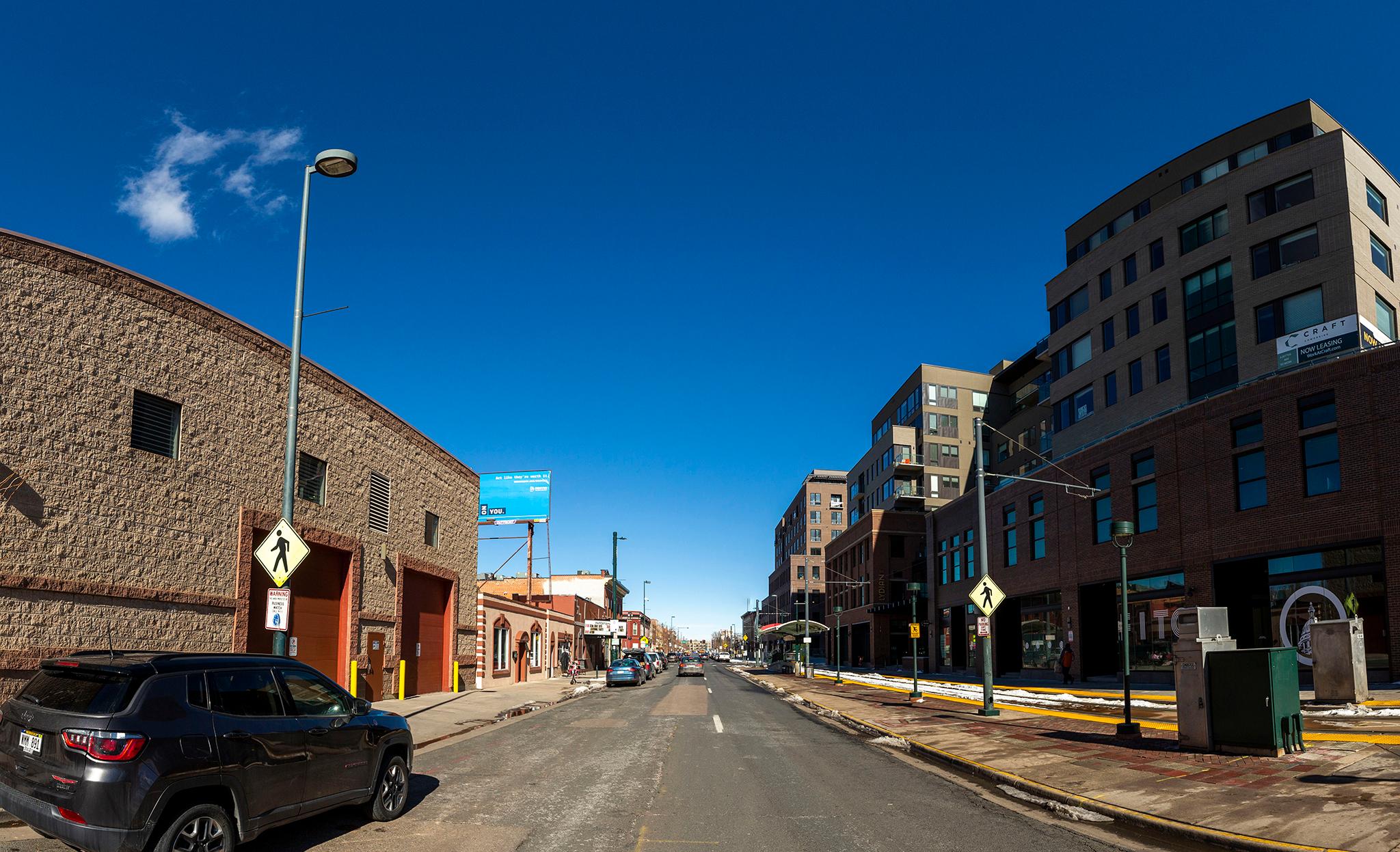
While most of the business owners we spoke to said they are still hanging on one year into the pandemic, two of the oldest businesses here are facing bleak realities.
There's Logan, who is closing what she called one of the last Black-owned retail spots in a neighborhood once known as "the Harlem of the west." Next door, Roxy Theatre owner Ivan Ovchinnikov said he's looking at the edge of a cliff.
"Three quarters of my income came from live entertainment," Ovchinnikov said last week as he worked to re-open his space for the first time in months. "My whole livelihood's been crushed over the last year."
Concert venues have repeatedly been described as "first to close" and "last to open" businesses in this pandemic, but Ovchinnikov thought he'd have a shot at some revenue last fall when things weren't looking so bad. The city was easing restrictions, so he opened up for a few shows in October. He could only allow 50 people inside his 500-person theater, and he had to buy tables and chairs so the usually standing-room-only venue adhered to the new rules. It was the first time in his ten years owning the place that everyone was seated for a rock concert.
But when he tallied his earnings at the end of the week, Ovchinnikov realized opening up was expensive. It would be cheaper to stay closed and just lose $10,000 each month. Then case numbers skyrocketed in November, and he wasn't allowed to open. He said he's out about 95 percent of his usual revenue and owes plenty more.
Ovchinnikov has been channeling his rage into his music. He said he produced 100 songs under his horror-metal moniker Scum LSP since the pandemic began.
"It's kind of like a punching bag," he said. "If anything, the inspiration's been constant."
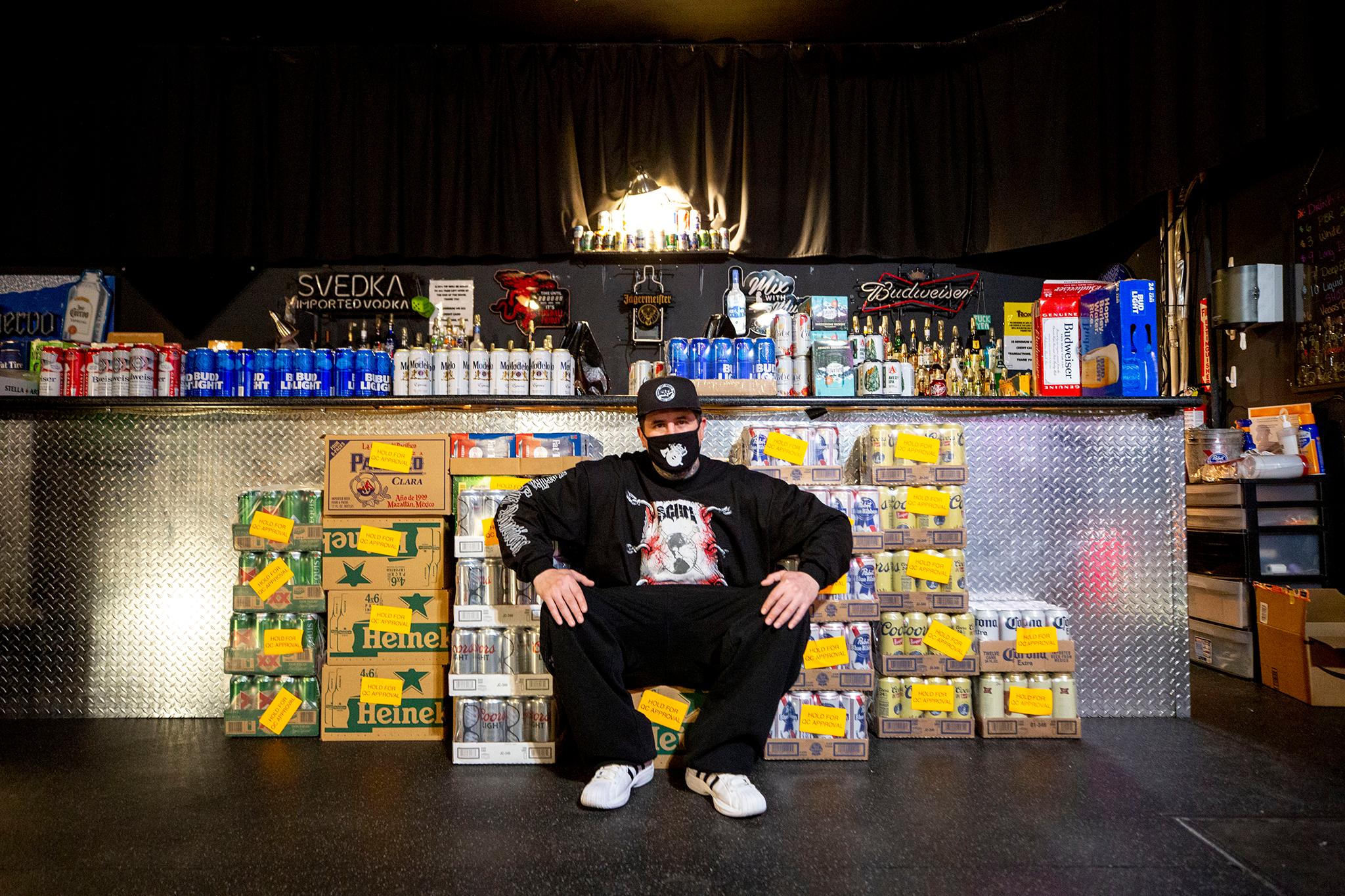
Now that he can seat as many as 150 people inside, Ovchinnikov has decided to gingerly reopen. He'll perform his latest album this weekend (he's made four since March), and he's got some other acts lined up, too. But Ovchinnikov said he won't be investing any more money into the space until he's sure he won't have to close again. He jumped the gun once. And anyway, he's short on funds.
His saving grace has been funding specifically for arts and venues. The state awarded him a grant from its Colorado Arts Relief Fund, which he said put a sizable dent in the debt he continues to accrue. He's also banking on the federal Small Business Administration's Shuttered Venue Operations Grant, which President Trump signed into law in December. But he hasn't gotten any of those federal dollars yet, and he's not sure when they might come. His future hangs in the balance.
"If it does happen, then we'll be alright, hopefully," he said of the SBA grant. "But if it doesn't happen, then we're dead."
On the other side of the street, business owners that offer space to sweat say they'll be OK, eventually.
The west side of Welton where Logan and Ovchinnikov have made their livelihoods looks the same as it has for decades. The east side symbolizes a new Five Points, one of fancy multi-use buildings that tower over the original infrastructure. The Lydian apartment building houses Fitness in the City and the River Yoga studio, whose owners spoke to us, and also the Welton Room cocktail bar, whose owner did not in time for this story.
Danielle Barbeau Cook, who owns the River, and Stefan Olander, who owns Fitness in the City, have been pairing their businesses together for years. They share two spaces elsewhere in town, and they opened new studios next door to one another about two years ago after the Lydian opened.
Pandemic restrictions significantly impacted their bottom line. Both estimated they lost between 40 and 50 percent of their revenue at their Welton Street locations. Cook and Olander said their older locations, like the space they share in the Golden Triangle, got through the worst of the pandemic with less trouble. They have a solid client base in that neighborhood because they've been around longer, they said.
Olander and Cook were able to adapt to the changing hellscape outside. They applied to grant and loan programs, worked with their landlord, and figured out how to put their services online. Cook said she was never interested in streaming yoga classes, but she had no choice but to change her mind.
"The folks that pivoted quickly are still around," she told us. "We had to get gritty."
Cook said she's "cautiously optimistic" about the future. Olander said he thinks loosening COVID restrictions in Denver are giving customers confidence. But like Ovchinnikov, he's still reckoning with some uncertainty.
"More than anything, I think psychologically it gave people the impression that we're moving in the right direction," he said of fewer restrictions. "There's still a level of fatigue with the moving of the goalposts and not knowing what's coming next."
Next to the Roxy, State Farm insurance agent Don Middleton said he's experienced a 23 percent hit in revenue, but he's generally feeling hopeful about where things are headed.
Middleton moved to the block last autumn, when his lease in LoDo expired. His new space in Five Points is smaller and more affordable. He said his landlord, who also owns Logan's spot, offered some financial incentives to seal the deal.
Across the street is Impact Humanity, a clothing bank run by the nonprofit Impact Locally, which serves people living in or on the brink of homelessness. Travis Singhaus, who runs things here, said he's been stretching every dollar over the last year. Volunteers and funding became tight, but he said he's not in danger of shutting down. He's been open all year as an "essential" business, and there's more need for Impact's services than ever.
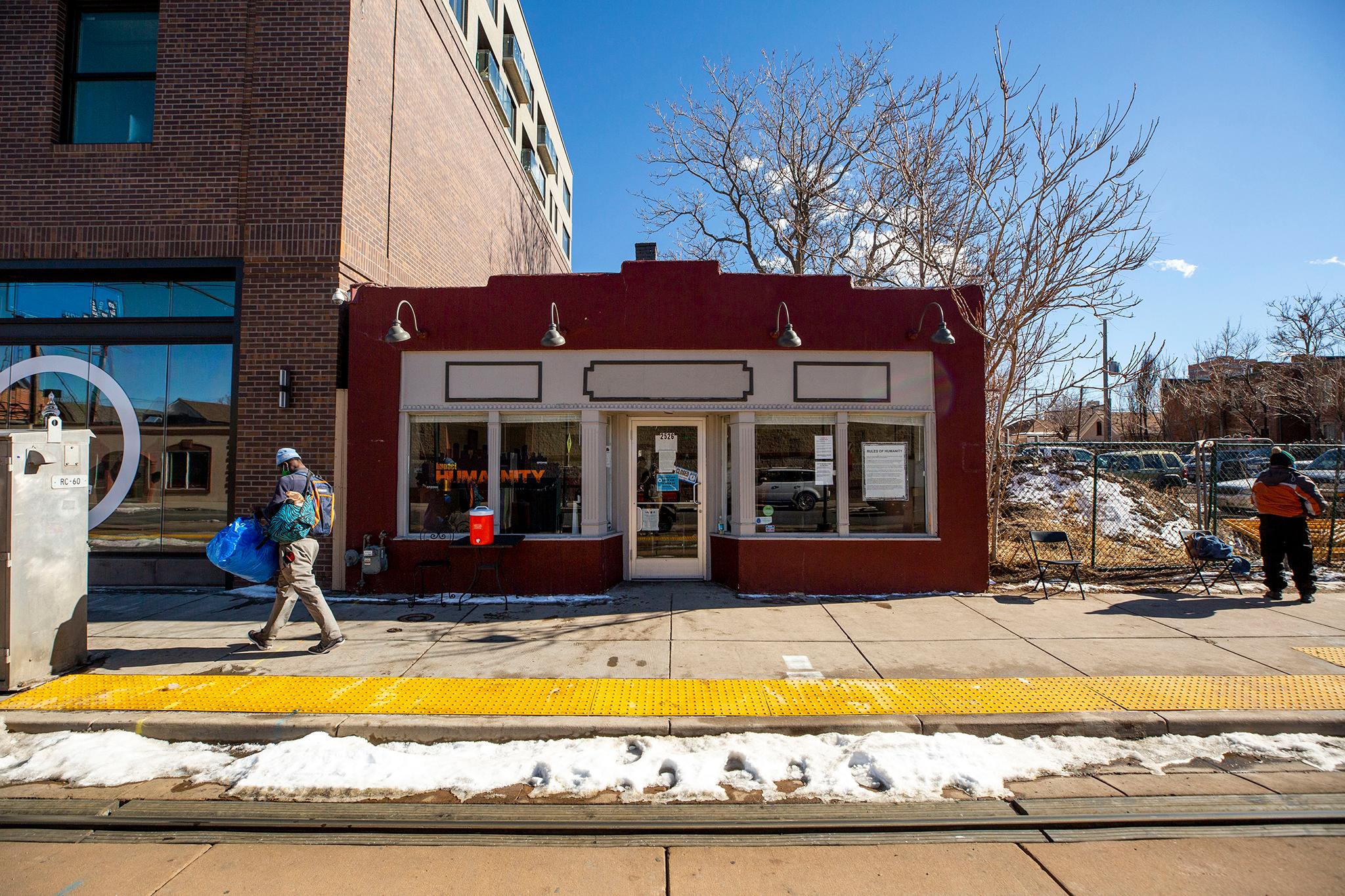
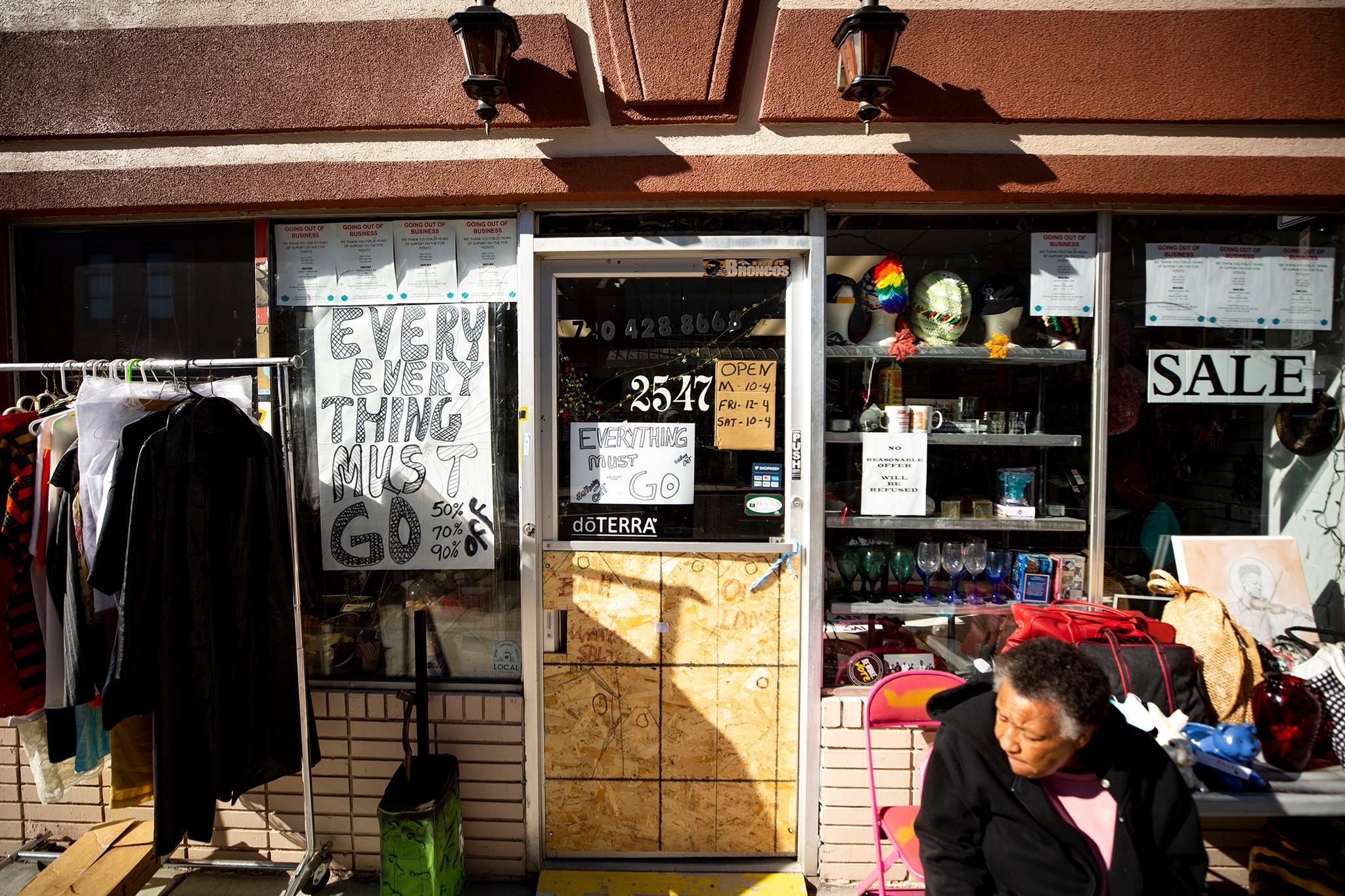
Logan said she's enjoyed good fortunes for years. She had loyal customers, and business was good before COVID, which is why she figures she's outlasted so many other stores like hers. The pandemic might have led her to close, but she said she saw the writing on the wall before COVID-19 arrived.
"You see the development on that side of the street. It's going to happen on this side, eventually," she said. "I think we're just going to fade."

